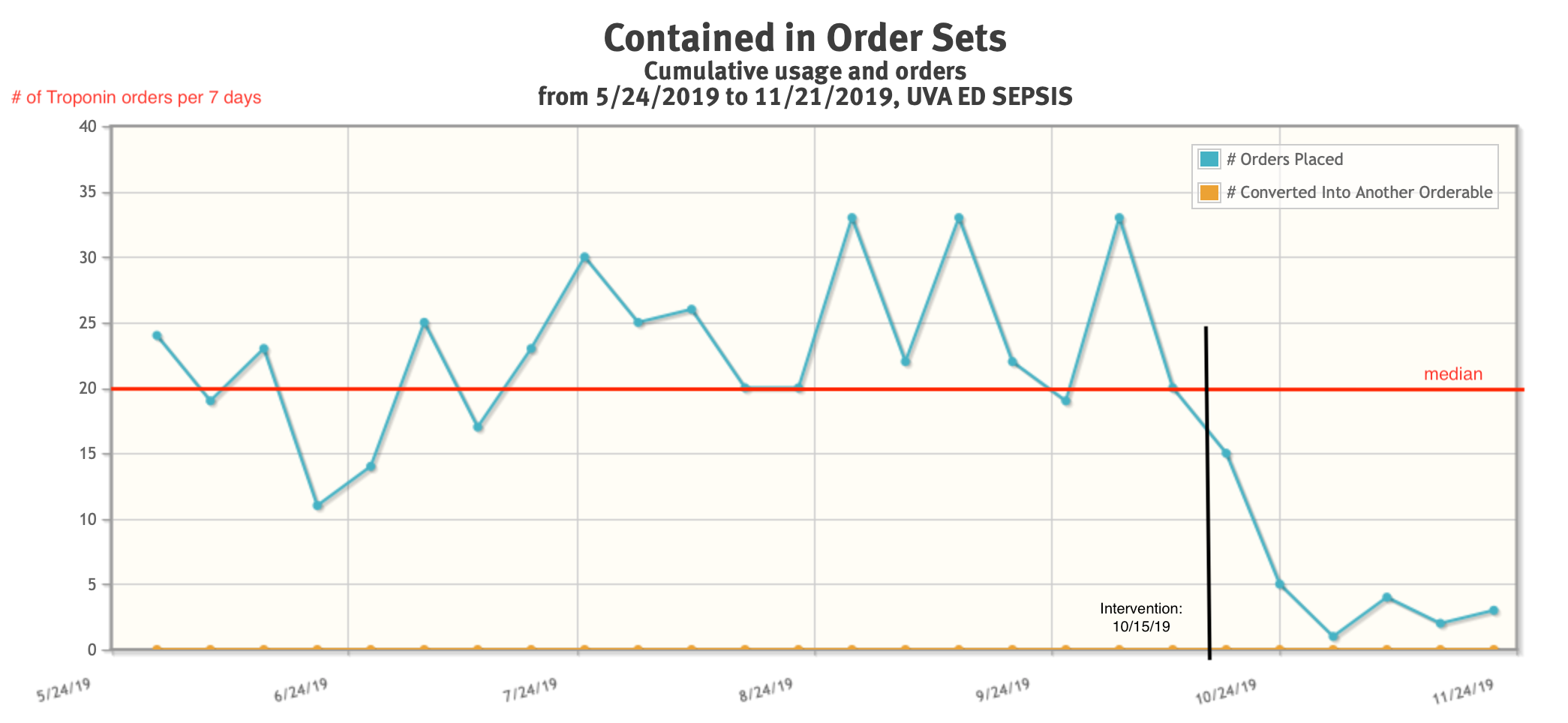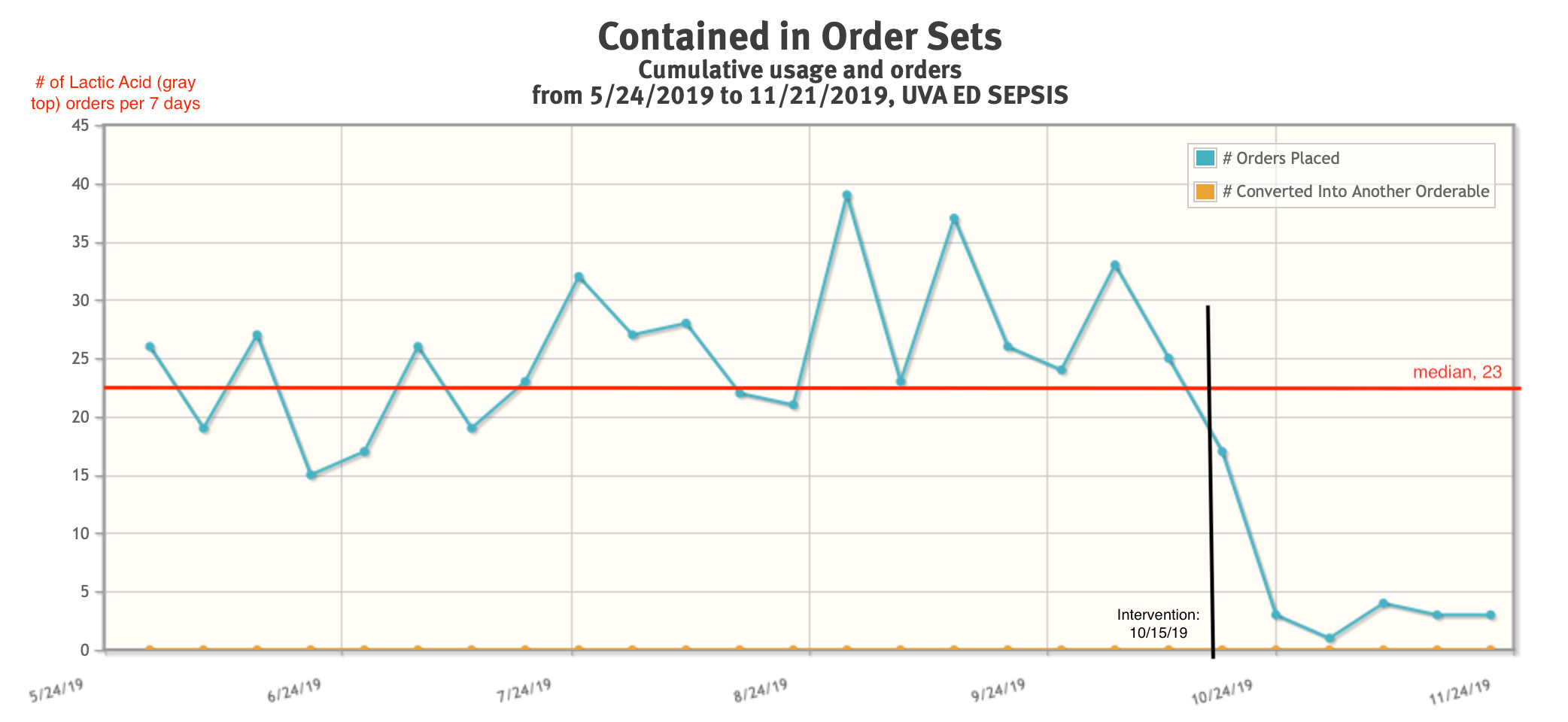Background: In light of increasing healthcare costs, diagnostic stewardship is an important component of providing high-value healthcare. Order sets, a collection of orders aggregated in a single location for a given diagnosis, condition, or treatment, are designed to promote adherence to evidence-based practices and reduce variability in care—both known drivers of high-value care (Atlas SJ 2017 and Schwartz AL et al. 2019). However, poorly designed or maintained order sets may prompt clinicians to order unnecessary diagnostic tests.
Methods: With the assistance of the UVA Lab Stewardship committee, a group of hospitalists and internal medicine residents conducted a review of clinical order sets to identify low-value or unnecessary laboratory tests ordered for medicine and orthopedic patients. The review revealed three low-value laboratory tests that were ‘pre-selected’ within two order sets. The ‘UVA ED Sepsis’ order set contained a pre-selected troponin test, VBG (venous blood gas—point-of-care) with lactate, and a lactic acid (gray top—core lab). The ‘ortho adult hip fracture fragility admission’ order set contained a pre-selected 1,25-dihydroxyvitamin D order. Through engagement with emergency medicine and orthopedic leadership, along with further literature review, the following changes were made: the troponin and lactic acid (gray top—core lab) orders were ‘unchecked’ as default orders within the UVA ED Sepsis order set on October 15, 2019; 1,25-dihydroxyvitamin D order on the ortho adult hip fracture fragility admission order set was replaced with 25-hydroxyvitamin D on September 4, 2018. Order frequency, pre- and post-implementation, was monitored with the use of LogicStream Health platform.
Results: •Between 5/24/2019 and 11/21/2019, 489 troponin labs were ordered via the UVA ED Sepsis order set. Pre-intervention, an average of 22.9 orders per 7 days (annual projected charges of $284,601) and post intervention, an average of 3 orders per 7 days (annual projected charges of $37,284) (Figure 1).•Between 5/24/2019 and 11/21/2019, 540 lactic acid (gray top – core lab) were ordered via UVA ED Sepsis order set. Pre-intervention, an average of 25.5 orders per 7 days (annual projected charges of $226,746) and post intervention, an average of 3.8 per 7 days (annual projected charges of $33,789) (Figure 2).•An average of 2.4 1,25-dihydroxyvitamin D tests were ordered every 7 (annual projected charges of $51,043) days pre-intervention amongst orthopedic surgery residents, while <1 ordered every 7 days post intervention (annual projected charges of < $21,268).
Conclusions: Order sets often promote adherence to evidence-based practices and decrease variability in patient care, however, they may be a source of widespread inappropriate diagnostic testing. In this study, we reviewed established clinical order sets and identified three low-value laboratory tests. These three laboratory tests represent three common domains of low-value testing: lack of evidence-based care, repetitive testing, and test name confusion. Careful consideration must be given to order set design and maintenance, as well as pre-selected orders to avoid unnecessary testing and expense.


